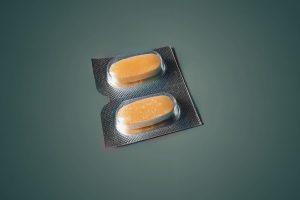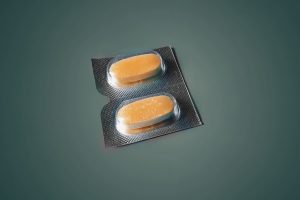Bacteria cause dental infections. Typically, healthcare professionals prescribe antibiotics to treat bacterial infections in the mouth. A dental infection, or an abscessed tooth, is usually triggered by tooth decay.
Alternatively, the infection may be because of a traumatic injury or a previous dental procedure. If you have a tooth infection, your doctor will likely put you on an antibiotic course for treatment, depending on the severity of your infection. One such antibiotic is metronidazole. Doctors commonly recommend metronidazole for dental infections.
This article discusses metronidazole for dental infections, dosages, warnings, and so much more relevant information that you may need to make an informed decision about this medication.
Metronidazole for dental infection
Metronidazole is often called Flagyl and is a strong antibiotic in the nitroimidazole class. This medication has proven effective in treating various infections caused by bacterial organisms, including dental infections. Metronidazole is typically effective against low-oxygen anaerobic bacteria. This makes the medication a suitable tooth infection treatment option.
Metronidazole’s mechanism of action when it enters the cell makes it effective against tooth decay. Once the medication enters the cells, it releases chemical molecules that attach to the bacteria’s DNA, causing structural changes. This disrupts the growth and capacity of the bacteria.
Need a prescription for Metronidazole?
Get access to a licensed medical professional.
Common symptoms of dental infection
Dental infections are common. For example, 91% of adults in the US experience dental infections at least once. Tooth decay typically comes with discomfort, pain, and inflammation, among other issues.
The symptoms of dental infection include:
- Severe throbbing toothache that can extend to the neck, ear, or jawbone.
- Sensitivity to hot and cold temperatures
- Difficulty or pain while chewing or biting
- Fever
- Inflammation of the face, cheek, or neck
- Difficulty swallowing
- Swollen lymph nodes
- Bad smell in the mouth
Causes of dental infections
Dental infections are common. They most commonly occur when bacterial organisms enter the pulp and spread to nearby tissues. This can be due to previous dental procedures, trauma, or caries.
The pulp is the innermost section of the tooth that has blood vessels, connective tissues, and nerves. A periapical tooth infection happens when bacteria enter the pulp.
Bacteria can access the tooth through a cavity or crack and spread down to the root, causing inflammation and swelling at the tip of the root. Bacterial organisms gain access to the innermost part of the tooth when there’s damage to the mouth’s protective defenses, like the gums and enamel.
Dental infections primarily occur because of the following:
Gum injury/damage (periodontal infection)
Cavities
These conditions can be caused by plaque buildup around the teeth due to poor dental hygiene.
Other causes include:
Previous dental procedure
Dental trauma
Cracked tooth
Read also: Does Metronidazole Treat UTI?
Will Metronidazole Be Effective In Treating Dental Infection
Metronidazole is an effective treatment for dental infections, including periodontal and non-periodontal dental infections. For instance, your doctor may recommend metronidazole for tooth abscesses, pericoronitis, endodontic infections, and ANUG.
This medication is effective against the bacteria causing these infections, eliminating the pain and inflammation it causes.
In addition, metronidazole is effective against anaerobic bacteria as it destroys the bacteria’s DNA, preventing it from growing or reproducing in the tooth. Tooth decay is caused mainly by anaerobic bacteria.
Additionally, metronidazole is often recommended with other antibiotics as a combination therapy to treat tooth infections caused by several aerobic and anaerobic bacteria.
It is essential to note that metronidazole is not a first-line treatment option for tooth infections.
Your healthcare expert will consider the severity of your infection, run some tests, and review your medical history before recommending this medication. You must follow your doctor’s instructions at all times.
Side Effects of Metronidazole
Metronidazole is effective against dental infections. However, it can cause some side effects to occur. Some of these common side effects include the following:
- A metallic taste in your mouth
- Diarrhea
- Nausea
- Vomiting
The following are rare side effects of metronidazole
Convulsions
Allergies
If you’re experiencing the side effects of this medication, you can take the following steps.
- Let your doctor know
- Stay hydrated
- Stay away from alcohol
- Complete your dose
- Continuously monitor your symptoms and signs
How long does metronidazole take to cure dental infections?
Metronidazole is commonly recommended for dental infections. The time it takes for the medication to work depends on various factors. Some of the factors include:
Type of dental infection
A chronic tooth decay may take longer to be cleared than an acute abscess in the tooth. The type of dental infection treated is pivotal in how long metronidazole takes to work.
The severity of the infection
Typically, metronidazole treats mild dental infections within 7-15 days. Sometimes, more severe infections may take several weeks or months before easing. The more severe the infection is, the longer metronidazole may take to work.
Personal differences
Patients react to medications differently. Some patients may experience a faster mechanism of action with metronidazole, while some might have to wait longer. You must complete your dose once you start your treatment course. Even if your symptoms lessen, you must ensure you complete your course as instructed by your doctor.
Metronidazole dosage for tooth decay
Your dentist is best positioned to determine the dosage required to treat your tooth decay with metronidazole. Your dentist will consider some factors before deciding on the appropriate dosage for your treatment.
The typical flagyl dosage recommended for adults with dental decay is 500–750 mg, taken thrice daily for 5–7 days.
Other antibiotics can have the following dosage instructions;
Amoxicillin: Adults use 500–875 mg orally every 12 hours for 7–10 days for dental decay.
Penicillin VK: For dental decay, adults use 500–1000 mg orally every 12 hours for 7–10 days.
Clindamycin: Adults use 150–300 mg orally every 6–8 hours for 5–7 days for dental decays.
Cipro (Cipro): Adults use 500 mg orally every 12 hours for 5–7 days for dental decay.
Doxycycline: Oral 100 mg twice a day for 5–7 days.
Preventing tooth infections
It is essential to practice good hygiene to avoid the complications that come with tooth decay. Follow the following tips to prevent dental infections.
- Brush your teeth twice daily with a fluoride toothpaste
- Use dental floss to clean your teeth daily
- Drink water that has fluoride
- Change your toothbrush when the bristles are frayed or every 3 months
- Limit your intake of sugary snacks
- Visit your dentist frequently for check-ups
- Use a fluoride mouthwash for extra protection
When to see a doctor
If you have a dental abscess or tooth decay, you should immediately reach out to your doctor to avoid the risk of the problem spreading to surrounding teeth. Contact your doctors if you’re feeling the following symptoms:
- Pus from your gums
- Bad breath
- Bleeding gum
- Oral lesions
- Swelling
- Toothache
- Fever
- Difficulty chewing
Emergencies like extreme pain, fever, or edema should immediately be reported and treated to avoid dire consequences of delay.
Read also: Is Metronidazole Safe in Pregnancy and Breastfeeding?
Frequently Asked Questions
Metronidazole cures toothache by eliminating the bacteria that cause tooth decay. Metronidazole releases chemical molecules that attack and destroy the DNA of infection-causing bacteria in the tooth.
Your dentist may recommend a combination therapy of metronidazole and amoxicillin/clavulanic acid to combat dental decay.
This combination is usually employed to eliminate a mix of bacteria, including the anaerobic species.
A licensed medical professional must determine the dosage to avoid unwanted consequences. You must complete your prescribed dosage to prevent antibiotic resistance.
Metronidazole is effective against tooth decay because its mechanism of action attacks the bacteria responsible for the infection, restricting its growth and reproduction by altering its DNA structure.
Metronidazole is a powerful antibiotic. You must complete your course as recommended for the medication to work as intended. You should start seeing an improvement in your symptoms after using metronidazole for 5-7 days, depending on the severity of your infection.
Antibiotics belonging to the penicillin class are usually the most commonly recommended to cure and prevent tooth decay. This includes penicillin and amoxicillin. Metronidazole is also a potent and effective treatment for dental decay.





